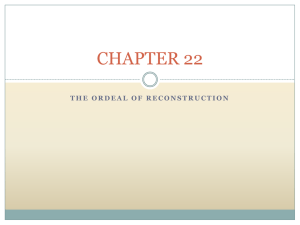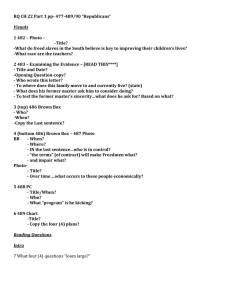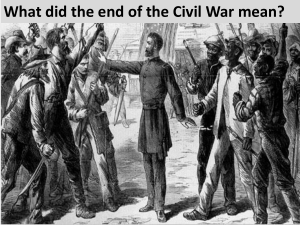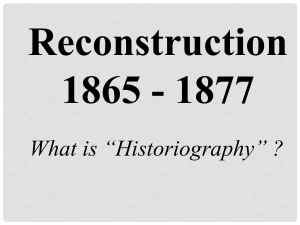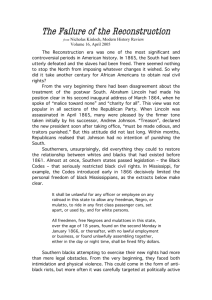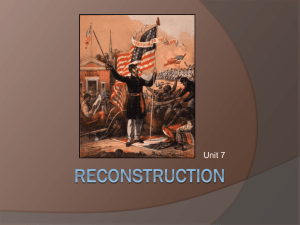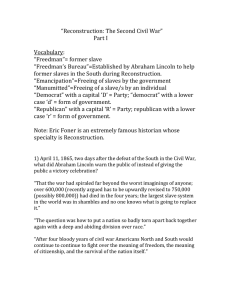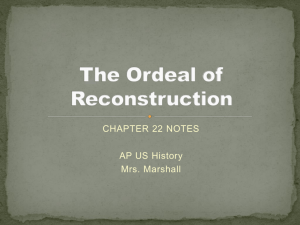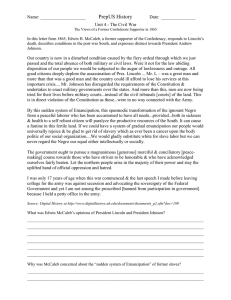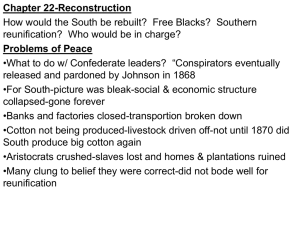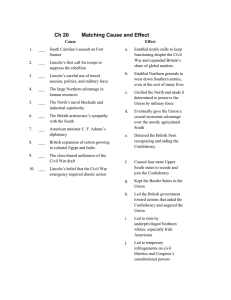Reconstruction
advertisement
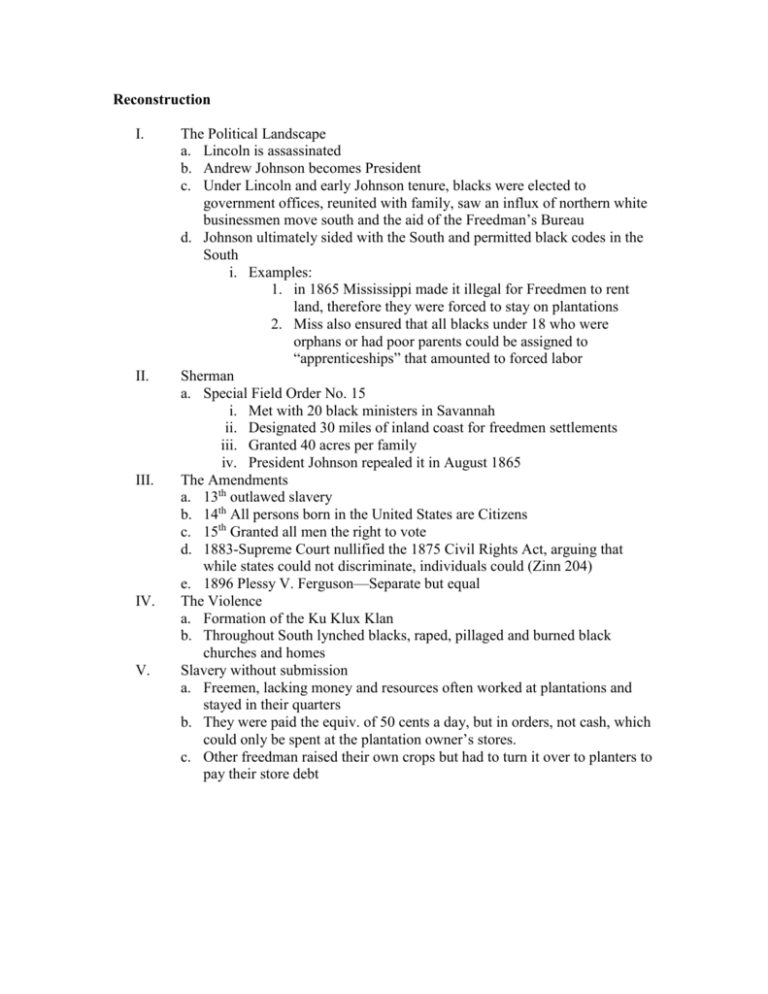
Reconstruction I. II. III. IV. V. The Political Landscape a. Lincoln is assassinated b. Andrew Johnson becomes President c. Under Lincoln and early Johnson tenure, blacks were elected to government offices, reunited with family, saw an influx of northern white businessmen move south and the aid of the Freedman’s Bureau d. Johnson ultimately sided with the South and permitted black codes in the South i. Examples: 1. in 1865 Mississippi made it illegal for Freedmen to rent land, therefore they were forced to stay on plantations 2. Miss also ensured that all blacks under 18 who were orphans or had poor parents could be assigned to “apprenticeships” that amounted to forced labor Sherman a. Special Field Order No. 15 i. Met with 20 black ministers in Savannah ii. Designated 30 miles of inland coast for freedmen settlements iii. Granted 40 acres per family iv. President Johnson repealed it in August 1865 The Amendments a. 13th outlawed slavery b. 14th All persons born in the United States are Citizens c. 15th Granted all men the right to vote d. 1883-Supreme Court nullified the 1875 Civil Rights Act, arguing that while states could not discriminate, individuals could (Zinn 204) e. 1896 Plessy V. Ferguson—Separate but equal The Violence a. Formation of the Ku Klux Klan b. Throughout South lynched blacks, raped, pillaged and burned black churches and homes Slavery without submission a. Freemen, lacking money and resources often worked at plantations and stayed in their quarters b. They were paid the equiv. of 50 cents a day, but in orders, not cash, which could only be spent at the plantation owner’s stores. c. Other freedman raised their own crops but had to turn it over to planters to pay their store debt
